News
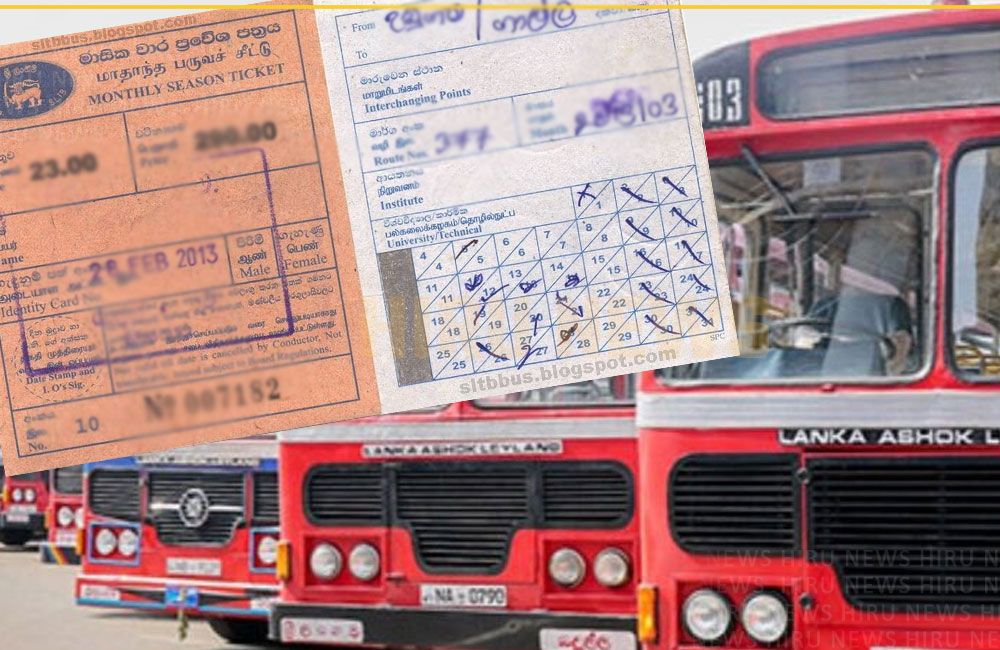
November SLTB Season Tickets Extended for Students in December
Schoolchildren are allowed to continue using their November SLTB season tickets throughout December to ease travel disruptions caused by recent disasters. Meanwhile, teachers have agreed to contribute a day’s salary to support the recovery of affected educational activities.
School students will be able to travel on Sri Lanka Transport Board (SLTB) buses during December by presenting their valid season tickets issued for November, authorities have announced.
Deputy Minister of Transport and Highways Prasanna Gunasena said the temporary concession has been introduced to support students facing transport difficulties, noting that the facility will be granted upon showing last month’s season ticket.
In a related development, Deputy Minister of Labour Mahinda Jayasinghe said teachers have collectively agreed to donate one day’s salary in January. The funds raised through this initiative will be directed toward restoring and supporting academic activities disrupted by the recent disaster situation.

From Grants to Governance: Can Sri Lanka Protect Its Seas?
The Cabinet-approved GEF-funded coastal conservation project marks an important policy signal, but it also raises deeper questions about Sri Lanka’s institutional readiness to protect its marine and coastal ecosystems amid mounting environmental and economic pressures.
With US$ 2.66 million in grant financing and technical support from the IUCN, the four-year initiative aims to quantify and integrate the economic value of coastal and marine ecosystems into national development plans. Targeting key coastal districts such as Galle, Mannar, Puttalam and Trincomalee, the project seeks to generate data-driven evidence on the contribution of ecosystems like mangroves, coral reefs and seagrass beds to livelihoods, climate resilience and economic stability.
From a governance perspective, the project arrives at a critical moment. Over the past year, the Government has focused heavily on macroeconomic stabilisation, debt restructuring and fiscal consolidation, often leaving environmental governance on the periphery. Coastal conservation agencies remain under-resourced, while enforcement of existing regulations continues to lag behind policy intent.
The absence of quantified natural capital values has historically made it easier for development priorities to override environmental concerns. Coastal roads, ports, hotels and aquaculture ventures have frequently proceeded without fully accounting for long-term ecological damage. By attempting to assign measurable economic value to ecosystems, the new project could strengthen the hand of regulators and planners in negotiating trade-offs between development and conservation.
Yet challenges remain. Sri Lanka’s coastal management framework is fragmented across multiple institutions, including the Coast Conservation Department, the Marine Environment Protection Authority and local authorities. Coordination gaps, political interference and capacity shortages have limited the effectiveness of conservation measures, even when strong policy frameworks exist on paper.
The Government’s one-year performance shows incremental progress rather than structural reform. While international partnerships and donor-funded projects continue to play a central role, domestic investment in marine research, monitoring and enforcement remains modest. Without parallel efforts to strengthen institutions and accountability mechanisms, natural capital valuation risks becoming a technical exercise with limited real-world impact.
Moreover, coastal communities particularly small-scale fishers and lagoon-dependent households face immediate pressures from climate change, declining fish stocks and pollution. Translating ecosystem valuation into tangible benefits for these communities will be essential for maintaining public trust and long-term conservation outcomes.
The initiative therefore represents a starting point rather than a solution. If the Government can embed its findings into budgetary processes, environmental impact assessments and coastal zoning decisions, it could mark a shift toward evidence-based marine governance. Failure to do so would reinforce concerns that Sri Lanka’s conservation agenda remains project-driven rather than policy-driven.
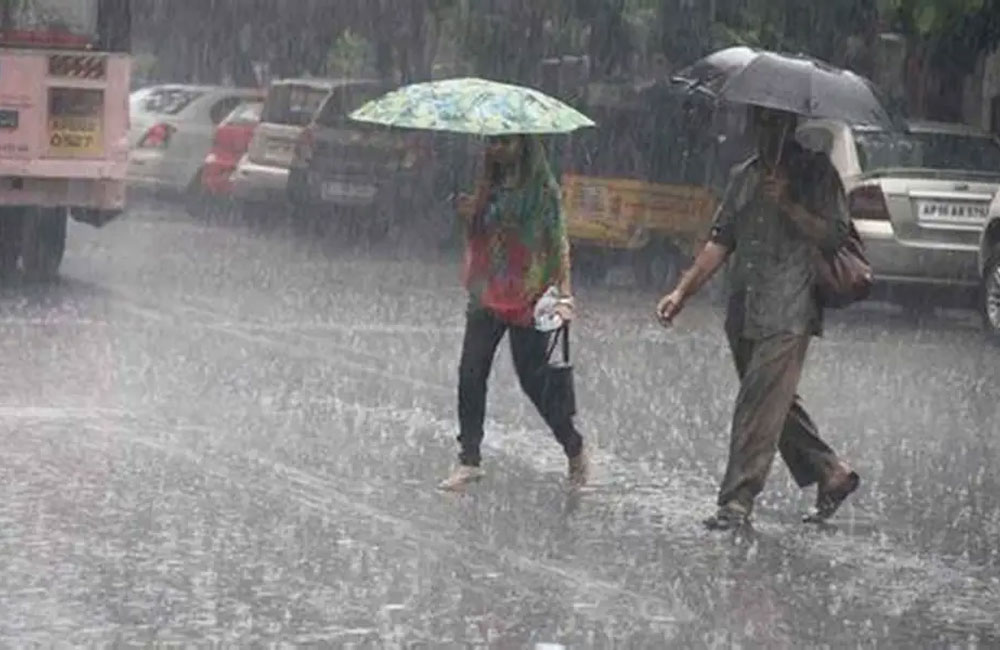
Showers Expected to Intensify Across Parts of Sri Lanka from Tomorrow
Weather conditions across the island are forecast to become more unsettled from tomorrow due to the influence of an easterly wave. The Meteorology Department warns of increased showers, gusty winds, and possible lightning, urging the public to remain cautious.
Showery weather is expected to strengthen across Sri Lanka from tomorrow (16) as an easterly wave begins to influence atmospheric conditions, the Department of Meteorology reported.
Intermittent rainfall is forecast for the Northern, North-Central, Eastern, Uva and Central provinces, while afternoon or evening showers and thundershowers may develop in other parts of the country after 1.00 p.m.
The Met Department also cautioned that fairly strong winds, reaching speeds of 30 to 40 kmph, could occur at times over the eastern slopes of the central hills, as well as in the Northern, North-Central and North-Western provinces and the districts of Trincomalee, Hambantota and Monaragala.
In addition, misty conditions are likely during the early morning hours in parts of the Sabaragamuwa and Central provinces, along with the Galle and Matara districts.
Authorities have advised the public to take necessary safety measures to reduce the risk of damage from sudden strong winds and lightning associated with thundershowers.
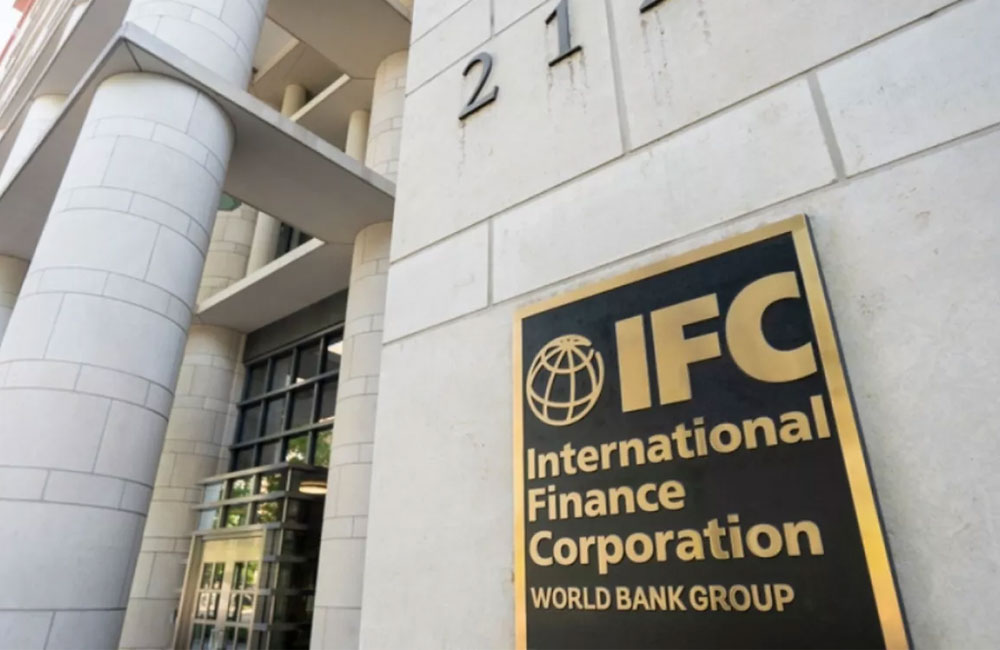
Sri Lanka Cannot Grow Rich by Looking Inward says IFC
Sri Lanka’s economic recovery narrative was sharply challenged this week by a stark warning from a senior global development financier: prosperity will remain elusive as long as the country continues to look inward.
The comment, made by International Finance Corporation (IFC) South Asia Regional Director Imad Fakhoury, has reignited debate about the direction of governance one year into the current administrationan era critics describe as marked by backward thinking, policy hesitation and an arrogance that masks failure with excuses.
Speaking at the Sri Lanka Economic Summit, Fakhoury argued that Sri Lanka must decisively reposition itself as an outward-looking, export-driven and sustainable investment destination.
His message stands in contrast to the prevailing tone of governance, where ministers frequently cite past administrations, global shocks and institutional constraints to justify slow reform and weak delivery.
“Sri Lanka cannot get rich by looking inward,” Fakhoury implied, pointing to decades of stop-start policies that have repeatedly eroded investor confidence.
While acknowledging Sri Lanka’s impressive social indicators low poverty levels, strong human development outcomes and one of South Asia’s highest per-capita incomes he described the country as trapped in a damaging paradox: notable development gains repeatedly undone by policy inconsistency and recurring economic crises, most recently in 2022.
The IFC’s assessment is uncomfortable for a government that came to power promising competence and renewal. One year on, business leaders complain of an administration overly focused on managing optics rather than confronting structural weaknesses.
Protectionist instincts, regulatory overreach and delayed decisions have reinforced perceptions of an inward-looking mindset, despite official rhetoric about competitiveness and reform.
Fakhoury stressed that Sri Lanka’s international brand must pivot toward green sustainability, export orientation and openness to global capital.
He highlighted the country’s potential to function as a regional transshipment hub while developing “islands of excellence” in digital services, agribusiness, specialised manufacturing and diversified tourism. However, he was clear that none of this ambition is achievable without policy predictability and continuous improvement in the business environment.
Despite governance concerns, the IFC continues to maintain a significant presence in Sri Lanka, with around $270 million in long-term investments across roughly a dozen companies, alongside advisory work and short-term financing. This commitment reflects confidence in the country’s underlying potential rather than approval of current policymaking.
Fakhoury’s message amounts to a direct challenge to Sri Lanka’s leadership: stability alone is not success. Without outward-looking policies, credible reforms and humility in governance, Sri Lanka risks repeating a familiar cycle temporary recovery followed by renewed decline.
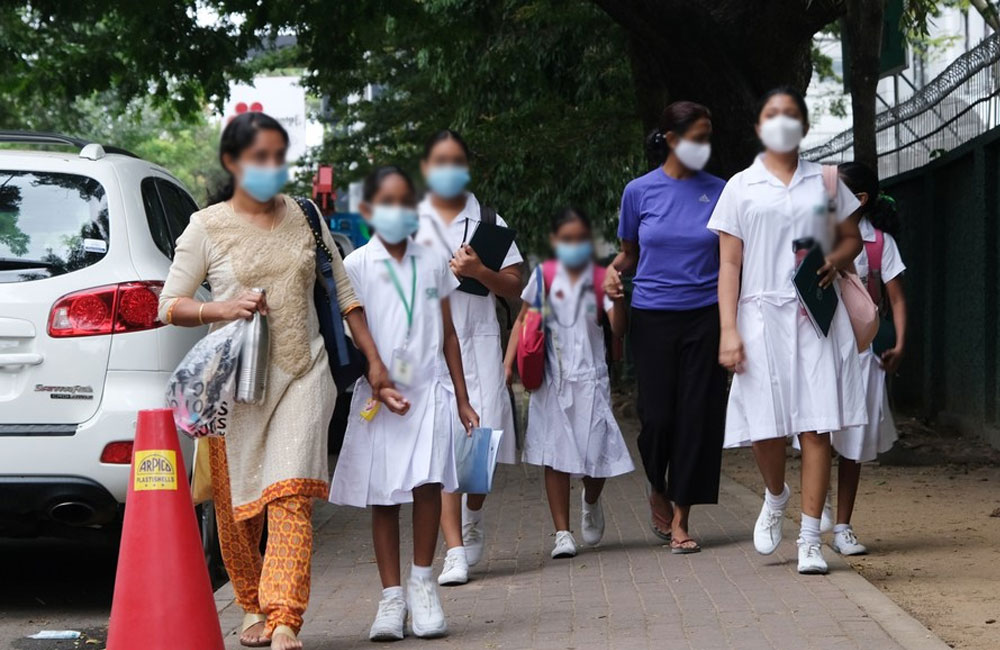
Schools to Reopen Islandwide Tomorrow; 147 Remain Closed After Cyclone Ditwah
Schools across Sri Lanka will resume classes tomorrow following closures caused by Cyclone Ditwah, the Education Ministry announced. However, 147 damaged schools will remain closed, while flexibility will be granted on school uniform requirements in affected areas.
Schools that were closed due to adverse weather conditions linked to Cyclone Ditwah are scheduled to reopen across the country tomorrow (16), according to the Ministry of Education.
Ahead of the reopening, school principals, teachers, and non-academic staff have been instructed to report to their respective institutions today (15) to carry out necessary preparations and ensure a safe return for students.
The Ministry noted that 147 schools that suffered damage or are still unsafe will not resume academic activities at this stage.
Considering the challenges faced by communities impacted by the disaster, the Ministry has also introduced a relaxed approach to school uniform regulations for students as well as academic and non-academic staff in affected areas.
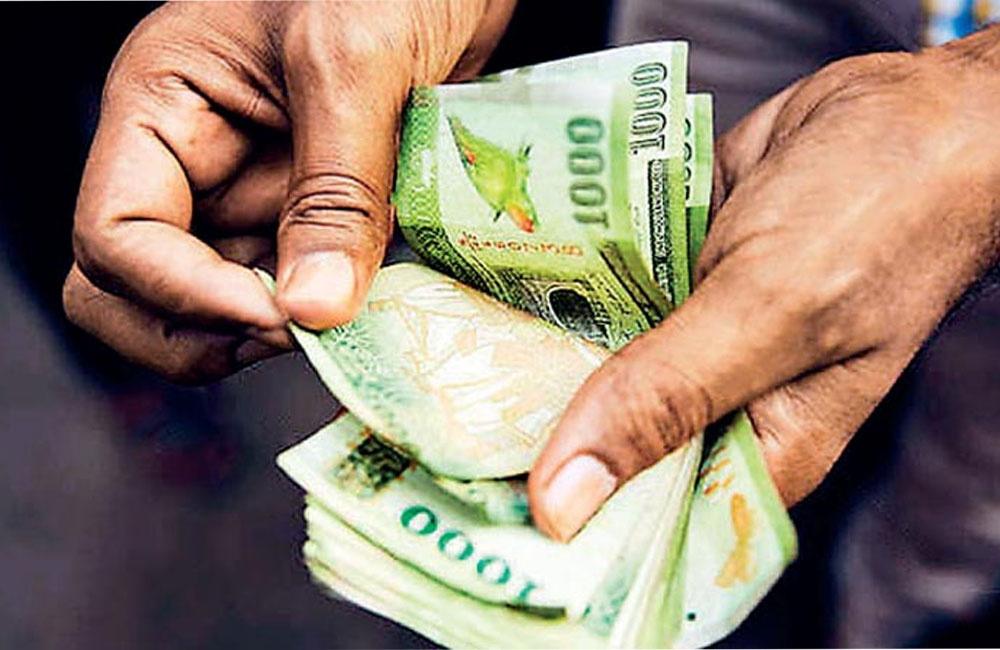
Debt Traps Multiply: Sri Lanka’s Microfinance Sector Faces Crisis
Sri Lanka’s microfinance landscape is at a critical inflection point as the clock nears the enactment of the Microfinance and Credit Regulatory Authority Act 2025, a law intended to overhaul a largely unregulated credit sector that has long burdened low-income borrowers and burdened lenders alike.
At present, only a handful of microfinance companies about four are formally regulated under the 2016 framework, leaving tens of thousands of informal lenders and community moneylenders outside recognised oversight.
Microcredit has historically offered a lifeline for poor households, rural entrepreneurs, and women seeking small business capital or emergency cash when banks would not lend. These services aim to support income generation, asset building and financial inclusion.
Still Sri Lanka’s poverty rate nearly 24.5 percent of the population remains high, illustrating the fragile economic conditions underpinning microfinance demand.
Despite good intentions, the current system has fuelled mounting distress. Parliamentary committees are now collecting data on borrowers unable to repay microfinance loans in regions including Nuwara Eliya, Batticaloa, Polonnaruwa and Colombo, signalling growing concern about defaults and financial stress.
Civil society and advocacy groups warn that predatory interest rates sometimes more than 40 percent and aggressive recovery tactics have pushed households deeper into hardship, especially women who make up a large share of borrowers.
For lenders, the absence of a strong regulatory regime has meant unclear lending standards and inconsistent risk management practices.
This environment impedes institutional robustness and contributes to uneven credit risk across portfolios. Regulators and microfinance practitioners report that the sector’s formal share of total credit is modest,but unregulated lending accounts for a much larger, opaque portion of the market.
The pending 2025 Act aims to establish a dedicated authority to license and supervise both traditional moneylenders and microfinance institutions, enforce consumer protection standards, and introduce transparent interest and collection practices.
Policymakers hope this will curb abusive lending while strengthening formal sector discipline.
Nonetheless, critics caution that enforcement alone will not resolve underlying socioeconomic pressures.
With the economy still recovering from a protracted financial crisis and natural disaster shocks pushing more families particularly in rural and war-affected areas into borrowing, structural vulnerabilities are deeply entrenched. Microfinance’s promise of poverty alleviation hangs in the balance between greater regulation and the real lived hardships of borrowers.

LPG Tender Shake-Up Raises Questions over Litro’s Decision
Sri Lanka’s energy procurement process has come under renewed scrutiny following state-owned Litro Gas Lanka’s decision to award its largest annual liquefied petroleum gas (LPG) supply contract to Switzerland-based Geo Gas Trading SA, sidelining long-standing supplier Oman Trading International.
The tender, which will cover the country’s entire domestic LPG requirement for 2026, has triggered controversy amid claims of abrupt contract termination, procedural rigidity and inadequate consideration of transitional requests.
The Cabinet of Ministers recently approved the award of a 12-month contract to Geo Gas Trading SA to supply 380,000 metric tonnes of LPG, with a permissible variation of plus or minus 20 percent, beginning January 2026. Litro officials have stated that the decision followed an international competitive bidding process and that the Swiss firm emerged as the lowest evaluated bidder after technical and commercial assessments.
However, the outcome has drawn sharp criticism from industry stakeholders, particularly Oman Trading, which has supplied LPG to Sri Lanka over several years.
The company has reportedly objected to the cancellation of its existing supply arrangement without accommodating a requested three-month extension, which it argues was necessary to ensure continuity and avoid supply disruptions during the transition period.
Oman Trading has claimed that its proposal met Litro’s updated tender specifications and that its long operational history with the state supplier was not adequately factored into the final decision.
Litro Chairman Channa Gunawardana has confirmed that Geo Gas Trading SA is a new supplier for Sri Lanka and that most of its LPG will be sourced from the United States, marking a departure from the Middle East-centric sourcing pattern used previously.
While Litro maintains that the Swiss trader fully complied with revised technical standards covering product purity, calorific value, cylinder compatibility, shipping safety and delivery timelines questions persist over the evaluation process that disqualified three out of five bidders at the technical stage.
Geo Gas Trading SA is headquartered in Switzerland, a hub for global commodity trading, yet it remains a relatively unfamiliar entity in Sri Lanka’s energy landscape.
Industry analysts note that publicly available information on the company’s track record in supplying large-scale LPG volumes to state utilities, particularly in South Asia, is limited.
This has intensified calls for greater transparency, given the critical nature of household LPG and its direct impact on cost of living and public safety.
Critics argue that while competitive pricing is essential amid Sri Lanka’s fragile economic recovery, procurement decisions involving essential commodities must also weigh supplier experience, continuity of supply and transition risks. The refusal to grant a short extension to an incumbent supplier, they say, warrants clearer justification.
As Sri Lanka continues to emphasise governance reforms and transparency under broader economic restructuring efforts, the Litro LPG tender is emerging as a test case. Whether Geo Gas Trading SA delivers seamlessly in 2026 or whether the decision becomes the subject of audit or parliamentary scrutiny will depend on how effectively the contract is executed and how openly Litro addresses the concerns now being raised.
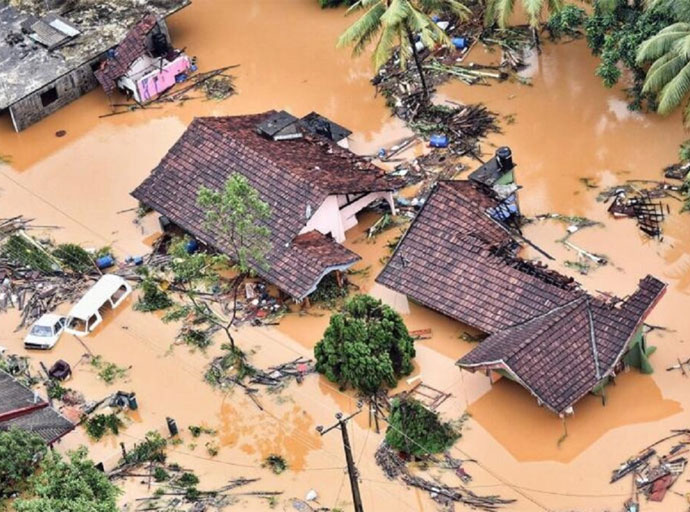
Houses completely destroyed by adverse weather exceeds 5,700 - DMC
The Disaster Management Center (DMC) reports that more than 5,700 houses have been completely destroyed due to the severe adverse weather conditions experienced recently across the country.
According to the latest data released by the DMC, the highest number of houses damaged has been reported from the Kandy District, with 1,568 houses completely destroyed and 14,111 houses partially damaged.
The Nuwara Eliya District has reported the second-highest number of houses damaged, where 767 houses have been completely destroyed and 3,742 houses partially damaged.
Meanwhile, 627 houses have been completely destroyed and 20,813 houses partially damaged in the Puttalam District, marking it as the district with the third-highest number of damaged houses.
In addition to these districts, 594 houses in Kurunegala, 578 in Badulla, 317 in Kegalle, 234 in Anuradhapura, and 225 in Polonnaruwa have also been completely destroyed.
The DMC stated that the highest number of individuals affected by the disaster has been reported from the Colombo District, where 330,443 people belonging to 86,147 families have been impacted.
Breakdown of the districts affected:
Puttalam District: 287,364 individuals from 80,375 families
Kandy District: 171,127 individuals from 54,716 families
Trincomalee District: 90,140 individuals from 27,234 families
Kurunegala District: 88,899 individuals from 26,474 families
Mannar District: 77,694 individuals from 23,704 families
Kegalle District: 83,482 individuals from 23,324 families
Anuradhapura District: 74,084 individuals from 22,562 families
Badulla District: 73,547 individuals from 22,257 families
Ratnapura District: 74,277 individuals from 19,092 families
The DMC also reports that the death toll resulting from the prevailing disaster has risen to 640.
The highest number of deaths due to the recent adverse weather has been reported from the Kandy District, which has recorded 234 fatalities.
The second highest number of deaths has been reported from the Badulla District, which is 90, the DMC has stated in its latest report issued this afternoon (12).
This is followed by 89 deaths in Nuwara Eliya, 61 in Kurunegala, 36 in Puttalam, 32 in Kegalle, and 29 in Matale District.
According to the report, 82,813 people belonging to 26,103 families are currently staying in 847 displacement camps across the island.
The largest number of safety shelters have been established in the Kandy District, where 27,227 people belonging to 7,952 families are staying in 279 camps.
The Nuwara Eliya District records the second-largest number of camps, with 20,825 individuals from 6,652 families staying in 211 safe locations.
The report further states that 147 safe locations have been set up in the Badulla District, accommodating 17,444 individuals from 5,856 families, while 104 safe locations established in the Kegalle District are housing 8,658 individuals from 2,980 families.
(Source - Adaderana.lk)
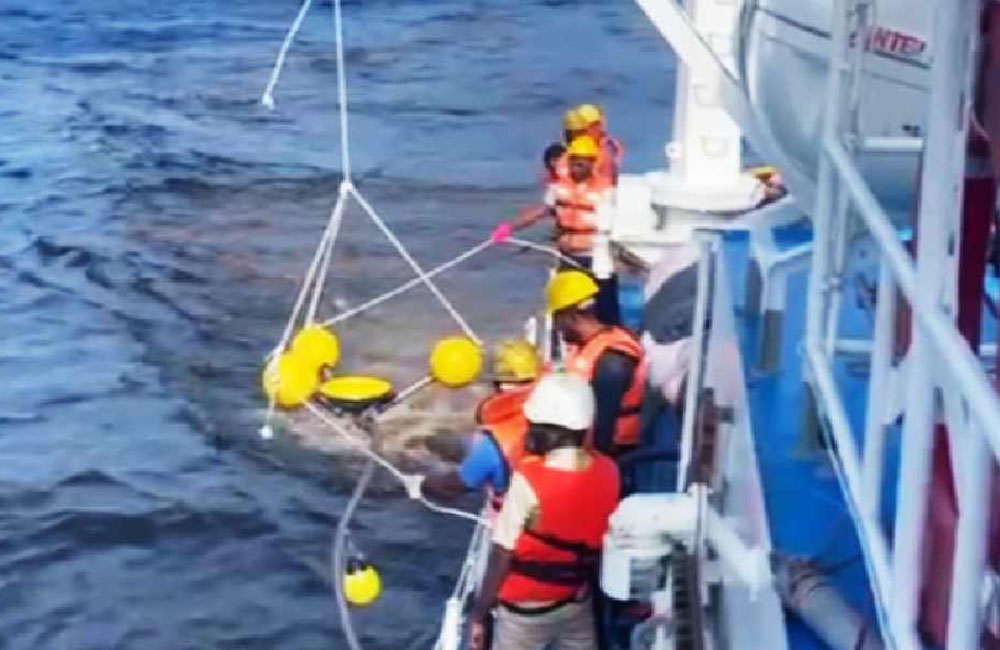
200 Litres of Crude Oil Leak Into Sea Near Colombo Port
A leak has been detected in a pipeline used to unload crude oil from a fuel tanker at the first buoy of the Colombo Port.
The Ceylon Petroleum Corporation said that unloading of fuel through the pipeline has been temporarily suspended, and repair work on the leak is currently underway.
Meanwhile, the Coast Guard has launched an operation to remove fuel mixed with seawater, deploying the vessel 'Samaraksha' for the task.
Sri Lanka Navy is also assisting in the operation.
The Marine Environmental Protection Authority said that samples of the leaked crude oil have been collected and sent for testing, estimating that around 200 litres of crude oil had leaked into the sea.

Game of the Year 2025 — Clair Obscur: Expedition 33 breaks records with 9 awards across categories
Clair Obscur: Expedition 33 became the central headline of The Game Awards 2025 after sweeping nine awards across major categories, including the top honour, Game of the Year.
Developed by the French studio Sandfall Interactive, the role-playing title broke the event’s all-time record, surpassing the previous benchmark of seven wins. Released in April 2025, the dark fantasy RPG had already attracted critical attention, but its awards performance pushed it into an entirely new sphere of visibility.
The scale of its sweep quickly dominated online discussions, with scenes, characters, and music from the game trending across platforms throughout the night.
Awards across categories
Clair Obscur: Expedition 33’s nine awards covered narrative, artistic direction, performance, and genre excellence. The full list includes:
Game of the Year
Best Game Direction
Best Narrative
Best Art Direction
Best Score & Music
Best Performance (Jennifer English)
Best Role-Playing Game
Best Independent Game
Best Debut Indie Game
The mix of awards reflects the game’s broad impact, spanning both creative and technical categories, and highlights how a debut studio managed to compete on equal terms with established global developers.
A breakout moment for a debut studio
The reaction within the industry centred on the significance of Sandfall Interactive’s emergence. Clair Obscur: Expedition 33 is the studio’s first major release, and yet it moved fluidly across categories typically dominated by larger teams. Winning both Best Independent Game and Best Debut Indie Game while simultaneously taking home Game of the Year underscored how the traditional boundaries between indie and mainstream development continue to shift.
Its world-building, layered narrative structure, and visual identity were key points of discussion among critics. Jennifer English’s performance, which earned her the Best Performance award, became another focal point online as clips and scenes resurfaced after the ceremony. The soundtrack and art direction also generated renewed attention, reinforcing why the game had swept so many of the evening’s creative categories
(Source - Money Control)

GeoAI Push Aims to Transform Sri Lanka’s Disaster Preparedness
Sri Lanka has taken a significant step toward modernising its disaster-management framework with the launch of the GeoAI for Disaster Resilience initiative, an ambitious programme that combines Artificial Intelligence with Geographic Information Systems (GIS) to strengthen early warnings, emergency response and long-term planning.
Launched in Colombo amid sombre reflections on the recent devastation caused by Cyclone Ditwah, the initiative signals a shift in how the country plans to confront increasingly frequent climate-related disasters.
Proceedings began with a minute’s silence to honour victims of the cyclone, which affected more than one million people, caused extensive loss of life and damage, and has been described as the most destructive natural disaster since the 2004 tsunami. The economic recovery has also suffered setbacks, with large-scale reconstruction still underway.
Addressing the gathering, ADRIMP President Sarath Premalal said Sri Lanka could no longer rely on traditional disaster-response models. He stressed that climate risks were intensifying each year and called for predictive, technology-driven solutions that allow authorities to anticipate hazards rather than merely respond to them. According to him, GeoAI provides responders with critical foresight, improving preparedness and potentially saving lives.
The year-long programme brings together over 20 government officials and 125 university students, supported by the United States Embassy in Sri Lanka. It aims to build a pipeline of disaster-technology specialists capable of applying advanced data tools to national emergencies.
GeoAI Project Lead Dr. Novil Wijesekara described the initiative as a system-wide transformation rather than a standalone technology project. He explained that the programme would strengthen the entire disaster-response ecosystem, integrating real-time data, predictive modelling and advanced analytics. This approach, he said, would help Sri Lanka move from reactive crisis management to intelligence-led preparedness.
Digital Economy Ministry Acting Secretary Waruna Sri Dhanapala highlighted the importance of digital integration, noting that fragmented data systems often delay decision-making during emergencies. He said GeoAI would help unify data across agencies, enabling faster coordination and more effective national responses.
Disaster Management Centre Director General Major General Sampath Kotuwegoda emphasised operational benefits, stating that early warnings and accurate forecasts can provide crucial lead time during floods, landslides and cyclones.
With training planned in hazard mapping, drone-based data analysis and real-time response applications, the GeoAI initiative is expected to strengthen national resilience and position Sri Lanka as a regional leader in AI-powered disaster preparedness.

Psychiatrists issue mental health guidance after Cyclone Ditwah
- Focus on strengths and small tasks: Activities such as cleaning, sorting documents, checking on relatives, and helping neighbours can restore a sense of control.
- Stay connected, especially with vulnerable groups: Check on pregnant mothers, young children, the elderly, people with disabilities, and anyone with long-term illnesses or mental health conditions.
- Reassure children: Keep routines as normal as possible and explain the situation in simple terms.
- Use spiritual and cultural practices safely: Prayers, meditation, and community rituals can offer comfort.
- Continue regular medications: Seek help from the nearest medical officer if needed.
- Limit distressing news: Follow only official updates to avoid unnecessary fear.
- Avoid rumours: Do not share unverified information or distressing images.
- Avoid alcohol and drugs: These worsen problems and should not be used for coping.
- Do not exploit the situation: The College reminded the public to act responsibly.
Page 34 of 660